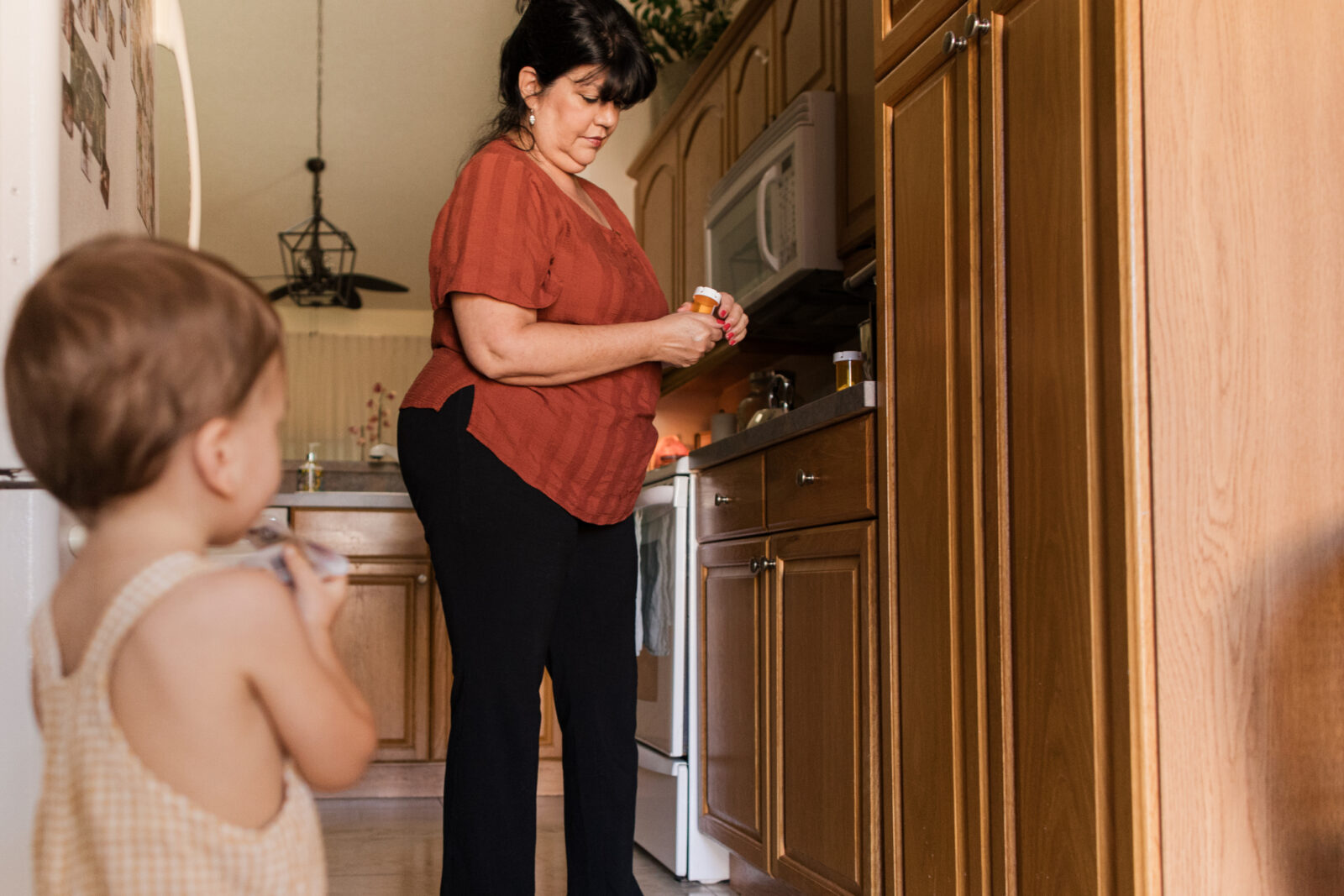Safekeeping Medicines for Festive Holiday Visits
November 2, 2023

The holiday season is a time for joy, warmth, and togetherness with loved ones under one roof, creating cherished memories. In this festive hustle and bustle, it’s easy to overlook one of the most underestimated safety concerns: medicines.
Overall, more than 1 million people are seen in hospital emergency departments for adverse drug events annually. Around 35,000 of them are young children who got into medicines while an adult wasn’t looking. Over-the-counter drugs can be just as harmful as prescriptions. To prevent tragedy, take these five actions:
- Toss old medicines. Make sure no medicines on hand have expired. Chemical compositions of medicines can change after the end date; they may simply be less effective—or they may, in fact, become dangerous. Some medicines can develop bacterial growth or lead to more serious illnesses and possible resistance by failing to treat an ailment. If they have expired, learn how to dispose of them safely and then do so. If a visitor needs an aspirin or antacid, it’s best that they get one that will work!
- Store up and away. To prevent curious children from finding medicines and vitamins, place them in a cabinet where children can’t see or reach them. Above counter height and locked is probably best, but different homes will have different places. Always return medicines to their safe place, even if they will be taken again in a few hours. It only takes a minute for a toddler to place something in their mouth. Secure the safety cap but remember child resistant does not mean child proof!
- Get others involved. Talk to family, friends, and other guests about creating a safe experience for the little ones. Request that any bags, purses, or coats with medicines be stored high and out of sight. Better yet, have a designated room that can be locked where visitors can place their items; sometimes people don’t realize that an over-the-counter item can be harmful.
- Use reminders. With over 1 billion drugs provided or prescribed and about half the population with a chronic illness, the odds are that a full household will have at least one person who needs to take medicine. Help them remain safe by setting alarms or displaying visible reminders (like on the refrigerator) listing the medication times. It’s also an opportunity to review any special considerations they might have, such as not drinking alcohol or driving, and help them plan accordingly.
- Be prepared. The goal is prevention, but if something should occur, acting fast is important. Store the Poison Control number (1-800-222-1222) in your phone and post it where it can be seen; specialists are available 24/7 to answer questions about taking medicine and help with poison emergencies. If a child has possibly taken medicine or vitamins, call – even if you are not sure.
We can keep our homes festive by safekeeping medicines. Afterall, the last thing anyone wants during the holidays is to spend it in an emergency room.
![Family Home Health [logo]](https://www.familyhomehealthnetwork.com/wp-content/uploads/sites/250/2017/04/logo-new.png)